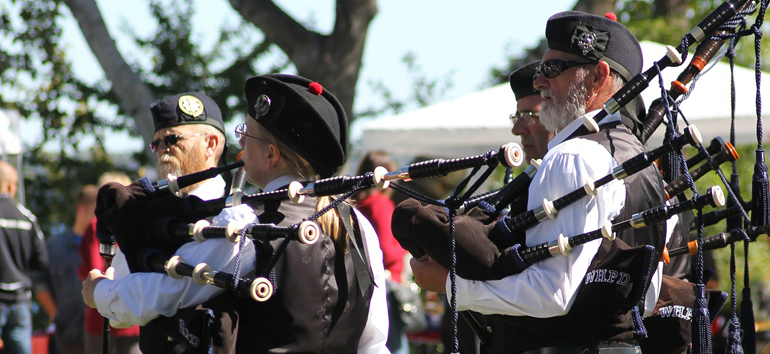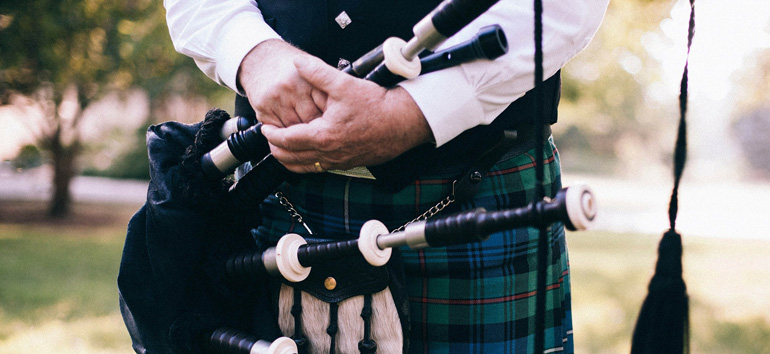Sign up for the Family Tree Newsletter! Plus, you’ll receive our 10 Essential Genealogy Research Forms PDF as a special thank you.
Get Your Free Genealogy Forms
"*" indicates required fields

Written by former Family Tree Magazine editorial intern Patrick Phillips
I don’t have a drop of Scottish in my blood. I’m primarily Irish, German and Italian. However in my fiancé’s house, you can find bagpipes, kilts and plenty of plaid to go around (don’t tell her I said that).
Having worked for Family Tree Magazine for only about a month or so, I have already been dubbed the genealogical expert among Julia’s extended family, which couldn’t be farther from the truth. When I told Julia’s grandfather that I would be working for Family Tree Magazine for a while, he told (ordered) me to let him know of any tips or tools for him to expand his own genealogical research.
ADVERTISEMENT
So in a desperate effort to ensure that I’m in his family’s favor, I’ve kept an eye out for any useful resources on Scottish ancestry for my future grandfather-in-law, taking notes from what experts have said. Here are some of the tips I have learned:
1. Find Scottish Records Online
Don’t have time to call around for records and wait to receive them? Thanks to the depth and breadth of the internet, you may not have to. In many cases, you can search for and obtain these records for free. For example, you can find free census records for all of the United Kingdom, including Scotland, at FreeCen. Search as far back as 1941. FamilySearch also makes it easy to search historical records. Browse such collections as Marriages, Birth and Baptisms, Church Records and more.
There is also Ancestry.com, which boasts a wide range of record types: Military, Census and Voter Lists, Marriage, Birth and Death and Court and Land Records. You will need a subscription to search and access resources freely; however, you can take advantage of the 14-day free trial to see if it is worth the splurge. ScotlandsPeople is another website that requires payment but nonetheless may be worth exploring depending on what you are looking for. Unlike Ancestry.com’s subscription system, ScotlandsPeople requires you to purchase credits. You then redeem the credits to access specific records. For example, if you want to take a peek at a will, that will cost you 10 credits (the equivalent of $2.77 USD, although costs will be listed in GBP, so keep conversion rates in mind). You can learn more about the credit system and general pricing information on the ScotlandsPeople website.
ADVERTISEMENT
2. Find Images of Census Records
Censuses were taken every 10 years since 1841 and are closed to the public for 100 years. That said, studying old census records for yourself can potentially reveal a lot about your ancestors. The most recent census you can view is the 1911 census. ScotlandsPeople is the only website with images of census records from 1841 to 1911. You can also find more information about searching records and ordering copies if needed.
3. Seek out Parish Records
The Church of Scotland’s historical records are called the Old Parochial Registers or Old Parish Registers for short (OPR). and each local parish kept records.
4. Also Look to Parishes for Possible Death Records
Scottish parishes rarely kept death or burial records, but you may be able to find some on Extant OPRs and death/burial event years for each parish at OPR Death Years.
5. Refine Your Searches on Genuki.Org
Genuki.org is a great resource for information on each county in Scotland, giving you access to county-specific resources to narrow your searches.
6. Find Your Clan’s Tartan
Each clan has its own tartan pattern, and is generally identified with a geographical area originally controlled by the chiefs (see map). Today, clan associations are much like family history groups. To learn more about clans and link to a clan search, VisitScotland offers a detailed breakdown about clans and how to find yours.
7. Focus Not Only On Name But Also Location
Find out as much as you can about your ancestors in the records of the area in which they settled. Don’t assume that when you find someone with the same name that it is your ancestor. He or she may have been a member of a different clan.
8. Determine When Exactly Your Ancestor Immigrated to the US
William Filby and Mary K. Meyer’s Passenger and Immigration Lists Index: A Guide to Published Arrival Records is a series of books that contain indexes of immigration lists that are in print.
9. Look for Naming Patterns
Scottish parents usually named their children following a specific pattern, which may result in names repeated within families. The firstborn son was named after the father’s father, and the second-born son was named after the mother’s father. Firstborn daughters were named after their mother’s mother, and second-born daughters were named after their father’s mother. Focus on the middle names to distinguish two or more family members with the same name.
10. Be Mindful of Parishes in Your Research
In order to research thoroughly, especially given the likelihood that several relatives will have the same name, you’ll want to know the parish where your ancestor resided—as well as the surrounding parishes. That’s because your family may have moved into neighboring parishes, but they were less likely to move to neighboring counties.
11. Observe Language Nuances
There are four major languages in Scotland: English, Gaelic, Scots and Latin. English is the most common, but in the Scottish Highlands, people would have spoken Gaelic. Outside of the Highlands, you might encounter the Scots language in one or more of its dialects.
12. Keep Your Scottish Heritage Close!
Start in the home. Look for heirlooms or stories among family members to help solidify whether or not you have found someone who is truly your ancestor.
Last Updated: November 2022
Related Reads
ADVERTISEMENT






